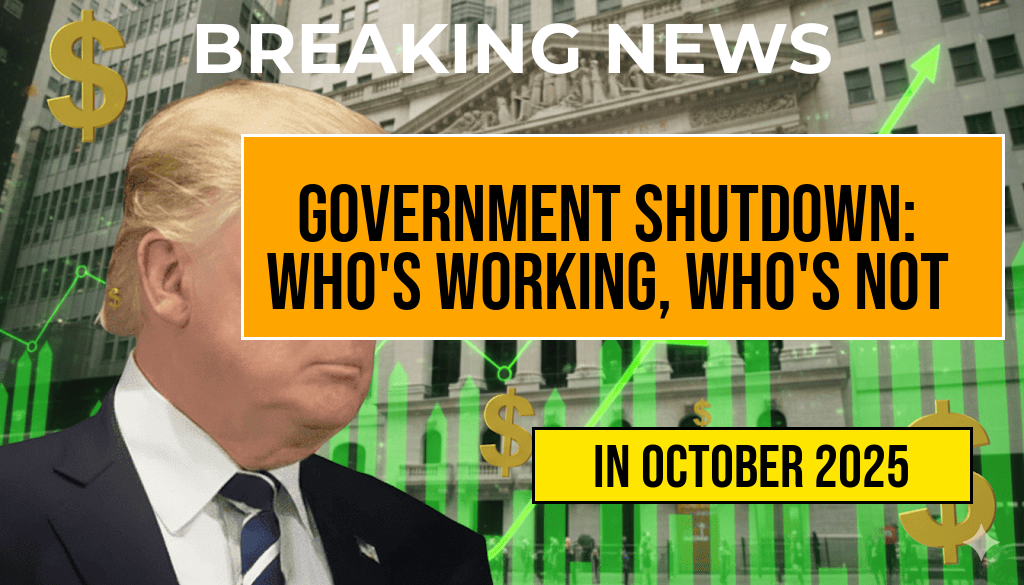As the United States grapples with another government shutdown, millions of Americans are left wondering how it will affect various federal agencies and services. The shutdown occurs when Congress fails to pass funding bills, leading to a disruption of normal government operations. This time, the impact stretches across a wide array of services, from Social Security payments to TSA security screenings at airports. Understanding the nuances of which agencies remain operational and which do not is crucial for citizens who rely on these services daily. Below is a detailed agency-by-agency breakdown of the current situation, outlining who continues to work and the implications for public services.
Operational Agencies and Services
Social Security Administration (SSA)
The SSA continues to operate during the shutdown. Social Security benefits, including retirement and disability payments, will not be interrupted. The agency has ensured that essential services remain available, and beneficiaries can expect their payments on schedule.
Internal Revenue Service (IRS)
The IRS faces significant disruptions. While essential services such as processing refunds and collecting taxes may continue, many customer service operations will be limited. Taxpayers may experience longer wait times for assistance and a slowdown in the processing of tax returns.
Department of Defense (DoD)
The DoD largely remains operational, with active-duty military personnel continuing their duties. However, civilian employees may face furloughs, impacting various support roles. Pay for military personnel will continue, ensuring that national defense remains a priority during the shutdown.
Transportation Security Administration (TSA)
The TSA is operational, ensuring airport security continues without major interruptions. However, staffing shortages may lead to longer wait times at security checkpoints. Travelers are advised to arrive earlier at airports to accommodate potential delays.
Agencies Facing Furloughs
Environmental Protection Agency (EPA)
The EPA will see a significant reduction in staff, with many employees furloughed. Essential functions related to public health and safety will remain operational, but non-essential projects will be put on hold, delaying environmental assessments and permits.
Department of Education
While some essential services, such as federal student aid processing, will continue, many programs may experience delays. Staff reductions will hinder the department’s capability to manage oversight and support initiatives for schools and educational institutions.
National Parks and Recreation
National parks will close to the public as staff are furloughed. Visitors to these sites will find gates locked and amenities unavailable, affecting tourism and local economies that rely on park visitors.
Implications for Federal Employees
Federal employees face uncertainty during shutdowns, with many experiencing furloughs or reduced hours. According to the Forbes, past shutdowns have resulted in delayed paychecks for many workers, even those deemed essential. This situation raises concerns for federal workers and their families, as they may struggle to cover expenses without regular income.
Public Impact
The ripple effects of a government shutdown extend beyond federal employees. Citizens relying on government services may experience disruptions in various areas:
- Healthcare: Some healthcare services funded by the government may face delays, impacting those who depend on them.
- Public Safety: Law enforcement agencies may experience reduced resources, affecting community safety and crime response.
- Travel: Longer wait times at TSA checkpoints could lead to frustrated travelers and potential disruptions in air travel schedules.
Looking Ahead
The current government shutdown highlights the delicate balance between political negotiations and public services. As Congress continues discussions on funding, the hope is to reach a resolution that minimizes the impact on citizens and federal employees alike. For updates on the government shutdown and its implications, visit the Wikipedia page on Shutdowns for comprehensive information.
| Agency | Status |
|---|---|
| Social Security Administration | Operational |
| Internal Revenue Service | Limited Operations |
| Department of Defense | Mostly Operational |
| Transportation Security Administration | Operational with Delays |
| Environmental Protection Agency | Reduced Staff |
| Department of Education | Limited Services |
| National Parks | Closed |
Frequently Asked Questions
What is a government shutdown?
A government shutdown occurs when Congress fails to pass funding legislation for government operations, leading to the temporary closure of non-essential federal agencies and services.
Which agencies remain operational during a government shutdown?
During a government shutdown, essential agencies such as Social Security, the IRS, and the Department of Defense continue to operate, while non-essential services may temporarily halt.
How does a government shutdown affect federal employees?
Many federal employees are placed on furlough during a government shutdown, meaning they are sent home without pay, while essential employees may be required to work without immediate compensation.
Will Social Security benefits be affected by a government shutdown?
No, Social Security benefits will continue to be disbursed during a government shutdown, as this program is considered essential and is funded through mandatory spending.
What happens to TSA operations during a government shutdown?
The Transportation Security Administration (TSA) remains operational during a shutdown, as airport security is deemed essential to national security and public safety.

Leave a Reply